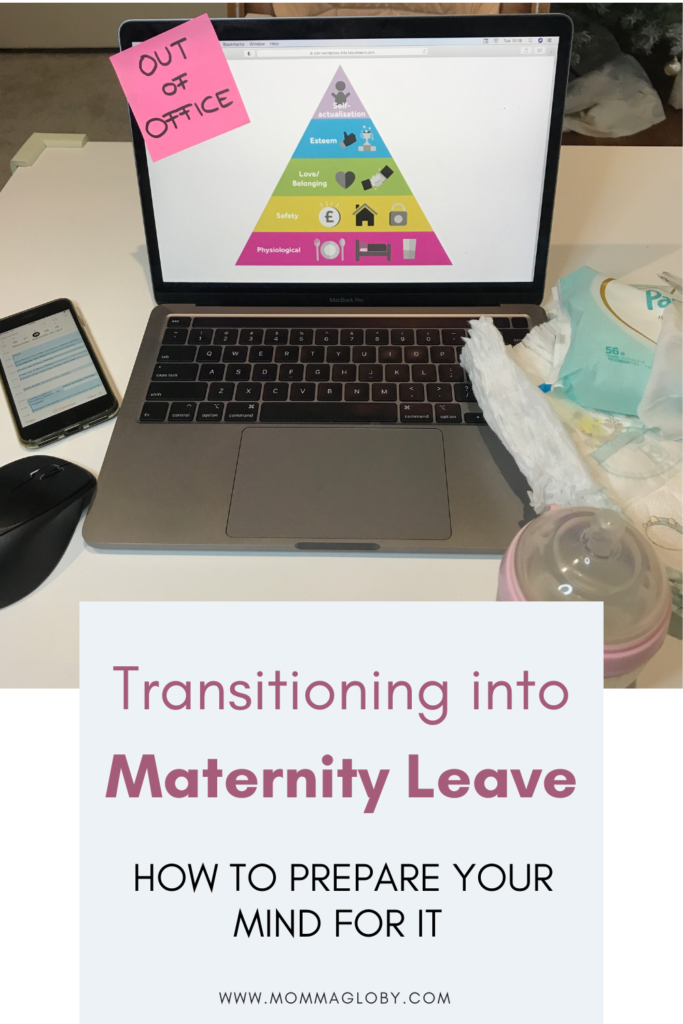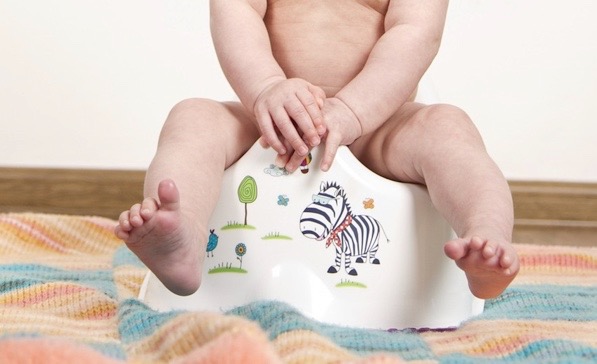How Going On Maternity Leave Can Mess With Your Mind
Going on maternity leave can be a confusing time. One day you’re busy with meetings, deadlines, communicating non-stop on to other adults for a third of your day. And then, you’re waking up with no meetings to go to, no schedule, no deadline, no business, etc. How did that feel for you?
In this article I want to discuss what happens to your mind when you go on maternity leave. What happens when you close that laptop on your last day of work after you’ve sent that last email and have set your out-of-office note?
Going on maternity leave for the third time
It’s Friday night or better said Saturday morning 2.30am. I am closing my laptop after finally having finished the last to do and set my out-of-office response. That’s it.
I feel relieved to have reached this point. Is it because this date was pre-determined and I worked towards it like the end of a project? Or am I happy to not have to deal with deadlines, office politics, tasks etc. anymore? At 34 weeks pregnant, I feel fine and like I could continue to work. At the same time, I am looking forward to the time off and using it for personal projects.
It’s the first week of maternity leave. I have a meeting with my old Head of HR/mentor and an event “Young Leaders Forum” scheduled. These two events make me still feel connected to work and like ‘I am doing something’. I am out meeting and interacting with adults around similar topics like the ones at work. I am feeling great about this maternity leave.
It’s the second week of maternity leave. I’m ready to leave the house to drop off the kids when my husband tells me I can stay home. He’ll handle kindergarten drop off and pick up today. Lovely. More time and less effort for me. I go back inside and finish my unfinished coffee when a sort of anxiety overcomes me. What am I going to do today? It’s so quiet in the house. There are no plans to meet anyone and no appointments for the day. How will I be productive? The theoretical list of to dos to prepare for Christmas, for birth and for baby is long. There is definitely no question of how to stay busy and be productive. It just feels very different from a day at work. But why? Time to analyze that conversation I had with a friend when we were both pregnant for the first time.
What happens with your mind set when you go on maternity leave?
The first time I went on maternity leave, a friend of mine was having a baby around the same time. We discussed how going on maternity leave is a huge mind set shift. To explain this shift we looked at Maslow’s “Hierarchy of Needs”.
Abraham Maslow was an American psychologist who theorized that human decision-making followed a hierarchy of psychological needs. In his initial paper from 1943 titled “ A Theory of Human Motivation” he proposed that five core needs form the basis for human behavioral motivation.
These core needs are physiological needs, safety needs, love and belonging needs, esteem needs and self-actualization needs.
What Are the 5 Levels of Maslow’s Hierarchy of Needs?
Maslow’s theory presents his hierarchy of needs in a pyramid shape, with basic needs at the bottom of the pyramid and more high-level, intangible needs at the top. A person can only move on to addressing the higher-level needs when their basic needs are adequately fulfilled.
- Before all else, we have to satisfy our “physiological needs”. These include the need for food and water, sleep, shelter and health.
- Once these are satisfied, “safety needs” such as protection from violence and theft, emotional stability and well-being, health and financial security becomes our drivers.
- The last of the so-called lower needs are are “Love and belonging needs”. These refer to relationships with family and friends, physical and emotional intimacy with your partner as well as membership in social groups.
- The first of the higher needs are “esteem needs” which consists of the elements of self-respect (the belief that you are valuable and deserving of dignity) and self-esteem (confidence in your potential for personal growth and accomplishments). Maslow specifically notes that self-esteem can be broken into two types: esteem which is based on respect and acknowledgment from others, and esteem which is based on your own self-assessment. Self-confidence and independence stem from this latter type of self-esteem.
- The highest need is the need for “self-fulfillment” or “self-actualization”. It includes the need for education, skill development, caring for others, traveling to new places, winning an aware, etc.
Transferring Maslow’s Hierarchy of Needs to Going on Maternity Leave
If you are ambitious, driven and interested to always develop yourself and further your career, then you are most likely operating from the higher needs of Maslow’s hierarchy of needs: Esteem and Self-Actualization.
Maslow states that one type of self-esteem is based on respect and acknowledgement from others. There is a high chance this need is satisfied by co-workers and bosses on a regular basis at work.
While at work there is also a good chance that you are learning something new, be that a skill, information relevant to your job, getting to know a new person, etc. on a regular basis. You are also refining your skills in whatever your job is on a regular basis.
So, there are many things feeding you higher needs while you are working. But what happens when you go on maternity leave?
Your mind set on maternity leave before baby’s birth
If you are in a country with maternity leave regulations such as Japan or Germany, you can take up to 6 weeks of leave before the due date. (Read here: The Beginner’s Guide to Maternity Leave in Japan). 6 weeks off. A 6 week holiday. 6 weeks to dedicate to personal projects that fulfill your esteem and self-actualization needs even more! This sounds wonderful.
However, the pregnancy, more pre-natal check ups, preparing for birth (third trimester boot camp), preparing for baby, might take time and focus away from working on those projects and from fulfilling these higher needs on the pyramid.
The 6 weeks of ‘free time’ will melt away even quicker when you already have a child. Taking care of a child takes energy, focus and time and these 6 wonderful weeks of “free time” can very quickly turn out to really just be a few free hours on a daily basis, if at all. You might be taking over more of the chores around the house as you now have the time, too.
This can cause a discrepancy between what you expected maternity leave to be like and its reality. A dissonance which can lead to frustration.
Not being able to work on your personal projects will mean your esteem and self-actualization needs won’t be fueled.
Not being in the working environment anymore has removed a lot of the things that were feeding your higher needs.
Therefore, a big change to your mind set and human behavioral motivation has started to take place.
Your mind set on maternity leave after baby’s birth
The shift of where you operate along the pyramid of Maslow becomes drastic once your baby is born. While you were fulfilling your esteem and self-actualization needs before birth and maternity leave, having a baby makes you drop down to the lowest level of the pyramid. All of a sudden your biggest concerns are the physiological and safety needs of your baby. Is the baby eating enough, is it sleeping enough, how do I bathe a baby, have the diapers been changed, is my baby healthy and developing ok?
Postpartum and Recovering from birth of course also means a huge shift of focus for yourself. You might have to deal with birth injuries, healing from a c-section, sore nipples and mastitis, not even to mention postpartum depression. So for yourself, too, the focus is on the lower level needs of the pyramid all of a sudden.
Additionally, whether you want it or not, you might be in this ‘post partum/new baby fog’ that can make you feel not quite like yourself, like you can’t remember anything from work, your skills and might make you afraid of how you will ever be able to work again. (Don’t worry, it passes and everything you knew is still there. It was just moved to the back a little to let you focus on baby).
How to prepare for your maternity leave mind set
All of the above is normal. It is amazing to be able to go on paid maternity leave both before and after baby is born but it does mess with your mind. As they say, preparation is key and therefore, here are my tips how to prepare for this mind set shift after going through it three times.

- Be aware. The discussion with my friend was so helpful for me. A) We made ourselves aware of the differences “at work vs. on maternity leave and B) We found a theoretical explanation for how we feel and think experiencing these differences.
- Be realistic. When you’re planning your maternity leave be realistic about the time you will actually have. Factor in pre-natal check ups, birth preparation, taking care of the children you already have, preparing for the new baby, etc.
- Ease into it. If you’re worried about going on maternity leave, plan yourself some meetings or events to ease into it. Meet with old colleagues, attend a webinar on a topic that interests you or use “keep in touch days”.
- Reach out. Whenever you feel Know who you can talk to if you’re feeling too alone, too overwhelmed with the mind set shift and don’t know what to do with yourself.
The article “Working out how you feel about maternity leave” has more ideas for a smooth transition from work into maternity leave.
Conclusion
Maternity leave, especially when paid, is amazing to have. But in the discussion about it, the effect on the mind set or the mental health is not often mentioned. By addressing it more this time can become an even more joyful one for everyone involved. Let me know in the comments how going on maternity leave was for you.






